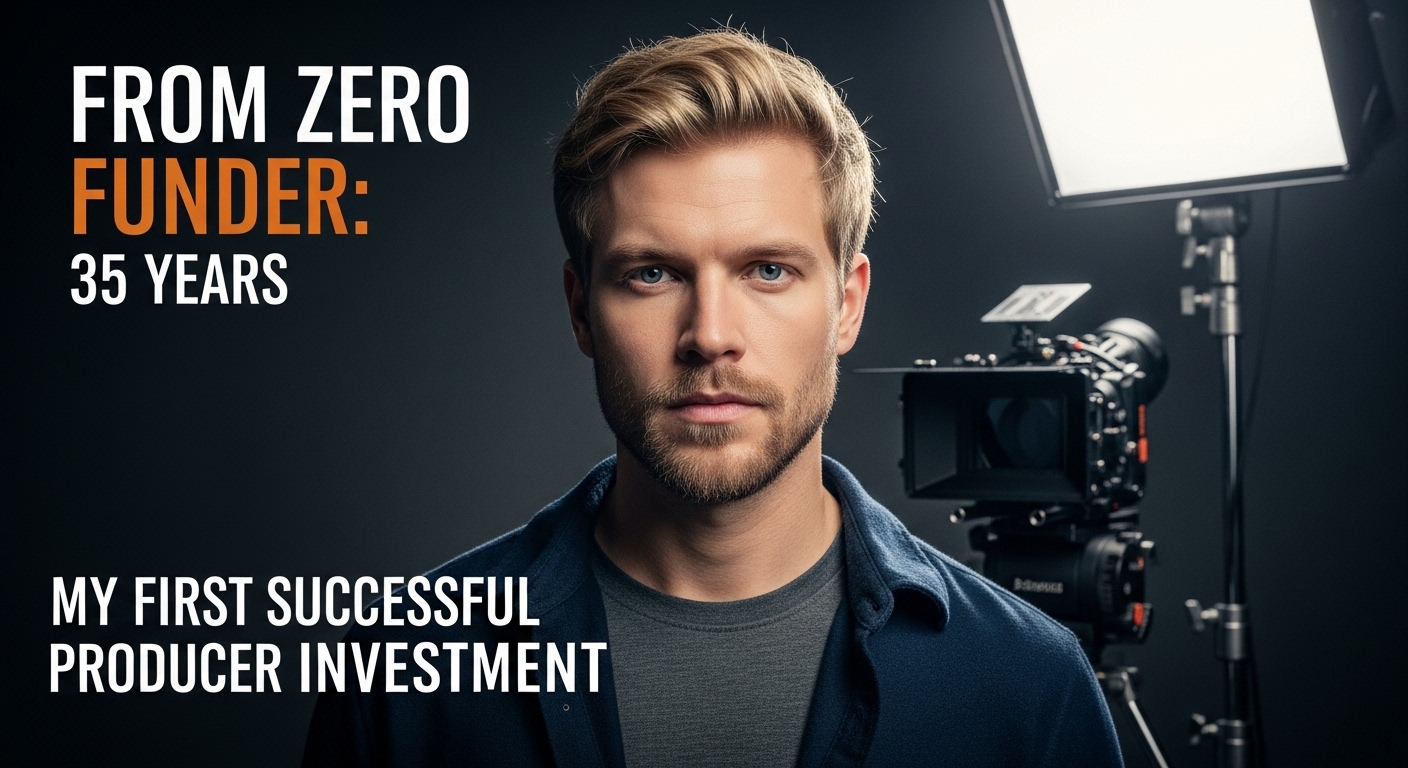I remember the first meeting with Mark like it was yesterday. I walked into his office, full of excitement, eager to talk about the script that had consumed me for months. It was a passion project—one that I believed in so deeply, it felt like it was going to be the breakthrough moment of my career.
Mark was everything I had imagined a successful producer to be: confident, connected, and enthusiastic. He had a reputation for turning small ideas into big projects, and he made me feel like I had just met my golden ticket.
He promised me the world—top-tier actors, a solid budget, a team of experienced professionals who could bring my vision to life. “This is going to be huge,” he told me, his eyes gleaming with excitement. “You’ve got the talent, and we’ve got the resources. Together, we’re going to make something extraordinary.” Those words gave me a sense of security I had never known. I thought this was it—the big break every filmmaker dreams of.
But that dream was about to turn into a nightmare.
The First Red Flag.
As the months went by, things started to feel off. The grand promises Mark made didn’t seem to materialize. At first, I thought maybe I was just being impatient. After all, producing a film is a massive undertaking, and I told myself that these things take time. However, when the production timeline started to stretch and excuses kept piling up, I began to worry.
Mark’s responses became more vague. “We’re still waiting on the right talent,” he would say. “The budget’s in the works; don’t worry.” I didn’t want to seem like a needy filmmaker, so I tried to trust him. I’d done the research—I knew the industry was unpredictable—but every time I asked for an update, I was met with promises of “soon” or “just another week.”
But soon turned into months, and soon became never.
The Breaking Point.
One afternoon, I walked into his office to discuss the next steps, only to find the door locked. When I called him, his phone went straight to voicemail. I shrugged it off at first—maybe he was in a meeting. But as the day turned into evening, and then into the next, I began to realize something wasn’t right.
I tried calling Mark again. No response. I sent emails, left messages, even reached out to his assistant. There was no word, no explanation. That’s when I started to panic. I wasn’t just losing a producer—I was losing my film. My dream was slipping away, and I didn’t understand why. It wasn’t until a few days later, when I finally spoke to someone from his office, that the truth hit me like a ton of bricks.
Mark had vanished.
And he’d taken my money with him.
The Aftermath.
The shock was overwhelming. I felt betrayed—not just by Mark, but by the entire system I had placed my trust in. I had poured everything I had into this film—my savings, my heart, my energy—and now, it was all gone. I had no contract, no legal recourse, no way of getting back what was rightfully mine. My hope, my vision, and my entire future were tied up in the promises he had made—and now those promises had turned into nothing but dust.
The feeling of helplessness was unbearable. How could someone do this? How could someone who promised to help me achieve my dreams turn around and steal from me? I spent the next few weeks in a daze, trying to figure out what to do, how to fix the mess that had been made. My phone rang with calls from angry investors who had also lost money, from crew members who hadn’t been paid, from actors who were still waiting for their contracts.
The more I found out, the worse it became. Mark had done this before. I wasn’t the first, and I wouldn’t be the last. It turned out he was a master manipulator, a smooth talker who had built a reputation on empty promises and deceit. He knew how to make people believe in him—and once he had their trust, he took everything they had and disappeared.
The Toll on My Mental Health.
The psychological toll was immense. I had sacrificed so much for this project, and the rug had been pulled out from under me. I was filled with anxiety, self-doubt, and a sense of betrayal so deep that it felt like it would never heal. The weight of it all crushed me. I felt stupid, naive, and like I had been taken advantage of in the worst way. My confidence as a filmmaker was shattered.
I began to question everything: Was I really cut out for this industry? How could I have been so trusting? What would my next steps even be? The mental and emotional strain of it all was more than I could handle, and I found myself retreating from the world, unsure of who I could turn to.
The Turning Point: Picking Up the Pieces.
It wasn’t until a close friend reminded me of why I started in filmmaking in the first place that I began to pull myself out of the dark place I had found myself in. I had always loved telling stories. That passion hadn’t gone away. It was still there, buried beneath the betrayal and the heartbreak. But I needed to find a way to channel that passion in a way that would protect me, that would keep me from making the same mistakes again.
I realized that in order to heal, I needed to reclaim my sense of purpose. The industry had hurt me, yes, but it couldn’t take away my love for filmmaking. I decided to take a step back, to rebuild, and to start fresh. I took on smaller, independent projects that didn’t require the kind of financial investment I had before. I built my way up from the ground again, learning to trust only those who had proven their integrity and commitment.
Learning from the Experience: Five Red Flags to Watch For.
Looking back, I can now identify five critical red flags that I should have noticed earlier:
- Empty Promises of Quick Success: If someone’s pitch sounds too good to be true, it probably is. Be wary of those who offer “overnight success” without solid plans or tangible results.
- Vagueness About Funding: A legitimate producer should be transparent about how the project is being funded and should never make excuses about financial delays.
- Avoiding Legal Contracts: If someone is hesitant to put things in writing or create a formal contract, that’s a huge red flag. Without legal protection, you’re left vulnerable.
- Lack of Accountability: When people dodge calls, emails, or meetings, it’s a sign that they may not have your best interests at heart. Communication is key in any partnership.
- No Track Record or References: A producer who can’t provide verifiable references or a history of completed projects should be treated with suspicion. Do your homework before committing.
A Message to Fellow Filmmakers.
If there’s one thing I want to tell any filmmaker who’s starting out or facing challenges in the industry, it’s this: Don’t let one bad experience define your future. The industry can be brutal, and unfortunately, not everyone you encounter will have your best interests at heart. But your passion, your craft, and your story are yours to protect. Trust your instincts, learn from your mistakes, and always be cautious when putting your career—and your money—into the hands of others.
If you’re struggling with betrayal, deceit, or simply need someone to talk to, you’re not alone. You are worthy of success on your terms, not someone else’s. And if you have a story to tell, don’t hesitate to reach out to us at team@imaffawards.com.
This experience was a hard lesson, but it taught me the importance of being vigilant and staying grounded in my passion. My journey as a filmmaker didn’t end when Mark disappeared—it simply took a new direction. And now, I’m ready to create again, this time with the knowledge and strength I gained from the darkest chapter of my career.

I am a highly experienced film and media person who has a great deal to offer to like-minded individuals. Currently working on several exciting projects, I am a film and media practitioner for over a decade. I have achieved a great deal of success in my professional career.





